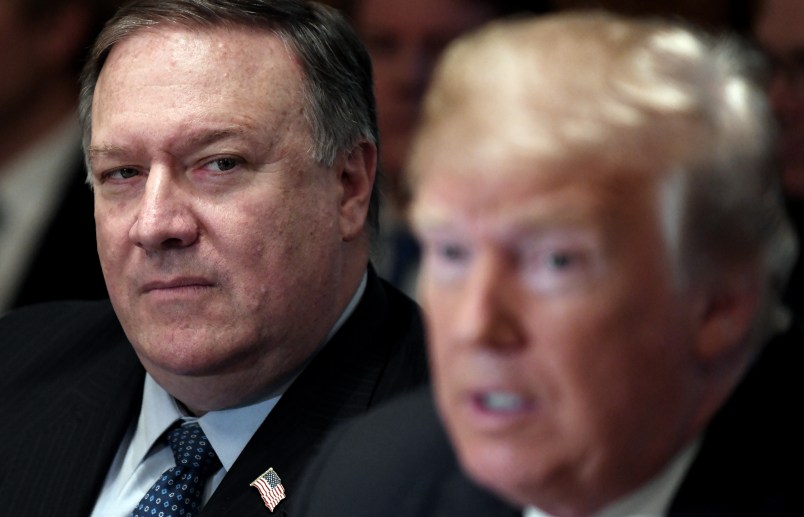Secretary of State Mike Pompeo on Thursday did not reject the notion of President Donald Trump somehow going through with his suggestion to delay the 2020 election, even though a president does not have the authority to do so.
Sen. Tim Kaine (D-VA) brought up Trump’s tweet during Pompeo’s Senate hearing on the 2021 budget.
“Can a president delay the November presidential election, Mr. Secretary?” the Virginia Democrat asked Pompeo.
“Senator, I’m not going enter a legal judgment on that on the fly this morning,” the secretary of state replied.
Pompeo offered another nonresponse when Kaine tried asking again.
“Senator, in the end, the Department of Justice and others will make that legal determination,” Pompeo said. “We all should want–I know you do too, Senator Kaine–want to make sure we have an election that everyone is confident in.”
“Are you indifferent to the date of the election?” Kaine asked.
“It should happen lawfully,” the Trump official said.
Neither the President nor the Justice Department can determine the date of the presidential elections; only Congress would be able to postpone the election if it so chooses.
However, Trump’s astonishing suggestion, which he based on the false claim that mail-in voting leads to voter fraud, may be less about literally changing the election date and more about riling up his base with the baseless notion that him losing to Democratic rival Joe Biden means the election was “rigged.”
Watch Pompeo below:
Pompeo won't say if Trump can delay the election. pic.twitter.com/8UqdFaG7N2
— TPM Livewire (@TPMLiveWire) July 30, 2020



